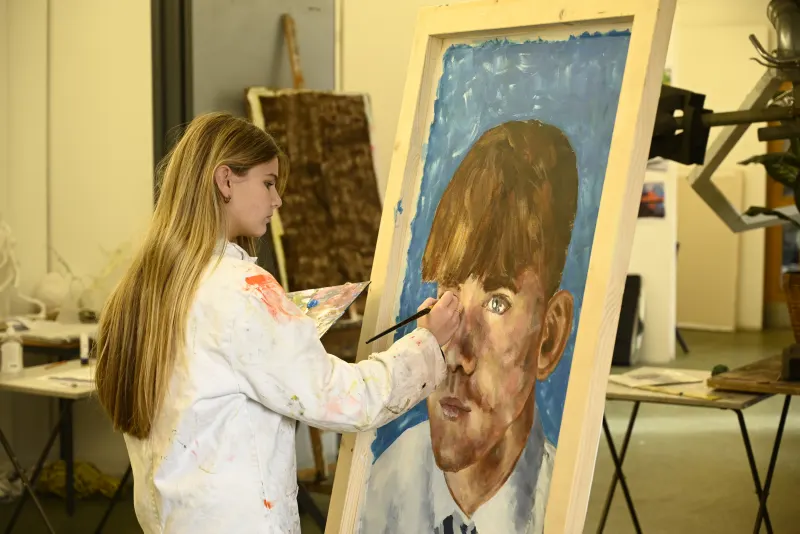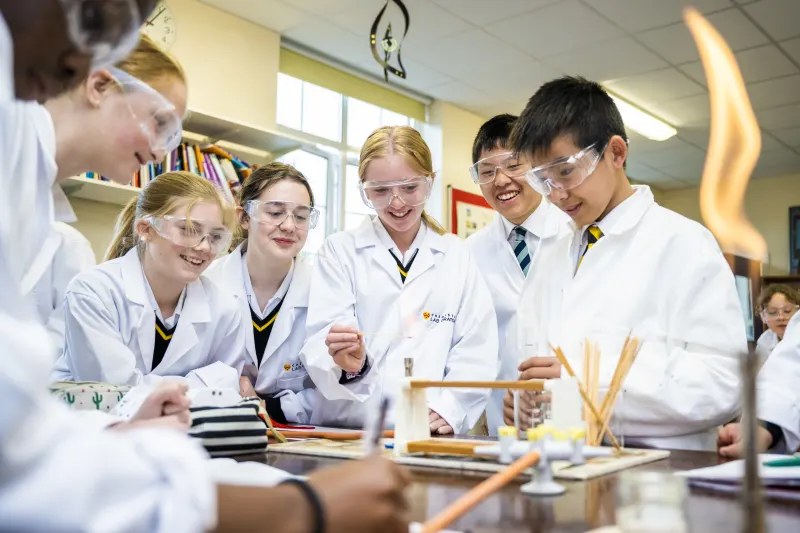Computer Science
ICT and Computing allows students to explore the latest technologies and develop a broad range of skills essential to the modern world.
In 1943, Thomas Watson, President of IBM, thought that there would be, ‘a world market for maybe five computers’. There are now estimated to be 2 billion computers in the world. Computer Science GCSE will help give you the grounding needed to navigate in this digital age.
The course will teach you the key elements of computing from the theory behind computer systems and programming to the practical skills required to code your own solutions in a modern language such as Python.
Computer Science at GCSE is wide-ranging, exciting and demanding – being considered as stretching and content filled as any of the other three traditional science GCSEs. The work is split fairly evenly between learning computing concepts and technologies and practical coding work on computers.

Innovate And Create
The Computing Department is heavily involved in the school’s STEAM Society (Science, Technology, Engineering, Art and Mathematics). We have to date worked on an iBeacon project and also building and flying micro-drones, using a newly acquired 3D printer to make the chassis and camera-mount.
About
Computing is something I have been passionate about since getting my first home computer (a Commodore VIC-20 for those old enough to remember them). I have always had a love of language and I see coding as something complementary to my passion for literature. A good piece of programming code is like a well-written poem: concise, elegant, well-structured and powerful in its effect.
A career in the IT industry after an English Literature degree saw me go from selling software, to working in technical support and on to becoming a Microsoft Certified Systems Engineer. Working as an IT Consultant I also specialised in database work and application design for small businesses.
I have kept my knowledge and interest in IT going since becoming a teacher. Recent developments in technology and tools to help teach computing, as well as the recent changes to the curriculum, have meant that I was keen to make the leap fully back into Computing.
Mr Ronan O'Sullivan - Head of Digital Strategy
Curriculum
1st, 2nd and 3rd Forms
There is one lesson a week for Computing. The curriculum is divided into three different areas: Coding, Computer Skills and E-Safety.
Coding starts off with more accessible systems such as Scratch and block-based coding with Micro:bits and using Code.org. Progress is then made onto text-based coding using Python and also looking at HTML and CSS scripting.
Computer skills focuses on ensuring that key digital literacy is in place and ranges from touch-typing practice to using MS Office packages to make sure that students can create graphs in Excel, presentations in PowerPoint and query data in Access.
With ever-increasing threats to privacy online, we aim to cover how students can protect their identity online and how to use social media safely and responsibly. As students have their own devices, it is important that they know how to use them and look after them.
|
Course Content |
Assessment |
|
Paper 1: Computer Systems |
(50%) |
|
|
1 hour 30 minute examination |
|
Paper 2: Computational Thinking, Algorithms Algorithms and Programming |
(50%) |
|
|
1 hour 30 minute examination |
Topics Covered
- Problem Solving
- Programming
- Data
- Computers
- Communication and the Internet
- The bigger picture
Co-Curricular
The Computing Department is heavily involved in the school’s STEAM Society (Science, Technology, Engineering, Art and Mathematics). To date we have worked on an iBeacon project and also building and flying micro-drones, using a newly acquired 3D printer to make the chassis and camera-mount.


